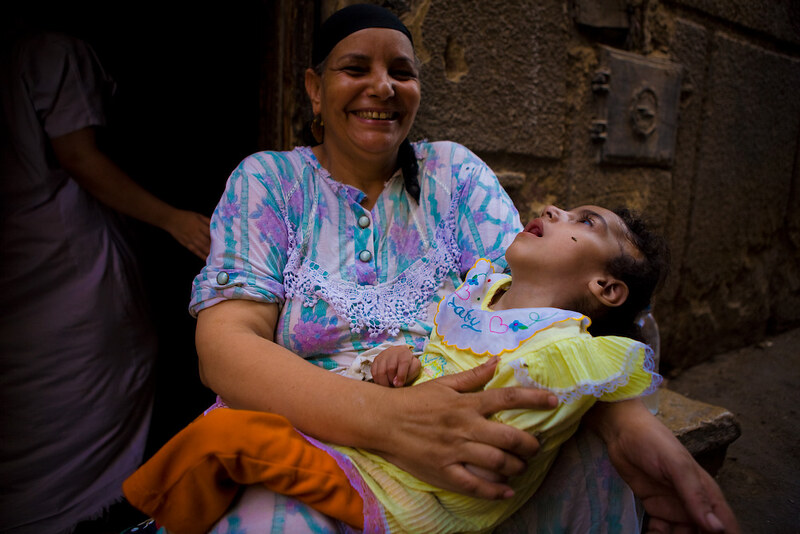Disability and Poverty: Barriers to Education and Health Care
 Children with disabilities face significant barriers to education, health care and economic opportunities, particularly in developing countries. Studies indicate that children with disabilities experience poverty at nearly three times the rate of their peers without disabilities. They are also 50% less likely to attend school and 25% less likely to receive medical care, making disability both a cause and consequence of poverty. These disparities highlight the urgent need for systemic solutions to ensure children with disabilities receive equal access to essential services.
Children with disabilities face significant barriers to education, health care and economic opportunities, particularly in developing countries. Studies indicate that children with disabilities experience poverty at nearly three times the rate of their peers without disabilities. They are also 50% less likely to attend school and 25% less likely to receive medical care, making disability both a cause and consequence of poverty. These disparities highlight the urgent need for systemic solutions to ensure children with disabilities receive equal access to essential services.
How Disability and Poverty Intersect
Families caring for children with disabilities often face higher costs for medical treatment, assistive devices and specialized education. In low-income countries, where disability resources are limited, these families struggle to meet their children’s basic needs. The lack of accessible schools forces many disabled children into isolation, depriving them of an education and future employment opportunities. Estimates suggest that 10% of children with disabilities do not receive basic rights such as education, health care or legal protection. In many cases, government policies fail to address these needs, leaving families without adequate support. Without systemic intervention, these children remain trapped in cycles of poverty, unable to access opportunities that could improve their quality of life.
Global Efforts to Address Disability and Poverty
International organizations play a crucial role in advocating for children with disabilities. The World Health Organization (WHO) leads initiatives to educate the public on disability rights and push for policy changes that promote inclusion. WHO also supports the United Nations Disability Inclusion Strategy (UNDIS), implemented in 2019, which provides a global framework for integrating disability rights into development efforts. In addition to global advocacy, nongovernmental organizations (NGOs) address disability and poverty at a local level.
Accomplish Children’s Trust, a United Kingdom (U.K.)-based nonprofit, focuses on medical intervention, education access and income generation for children with disabilities in Uganda and Malawi. Many of these children previously lacked access to health care and schooling, but the organization works to integrate them into support systems that improve their long-term well-being.
The Role of NGOs in Reducing Disability Inequality
- Community-based Approaches. Unlike large global institutions, NGOs often focus on local solutions tailored to community needs. By involving local leaders and residents, they create sustainable programs that continue without relying on long-term external aid. This grassroots approach helps address immediate challenges while fostering long-term systemic change.
- Small-Scale, High-Impact Interventions. Smaller organizations, such as Accomplish Children’s Trust, have made measurable differences despite limited resources. The trust has facilitated physiotherapy and occupational therapy for 3,500 disabled children at Kyaninga Child Development Centre, provided epilepsy medication to 700 children and helped 356 children enroll in school—90% of whom had never attended school before. Additionally, 200 families receive financial support to care for their disabled children.
- Targeting Key Risk Factors. Children with disabilities are at higher risk of malnutrition, disease and unemployment. Many NGOs address these risks by providing health care services, advocating for inclusive education policies and supporting vocational training programs. These efforts not only improve the quality of life for disabled children but also increase their future economic independence.
The Importance of Awareness and Policy Change
Governments and international organizations have begun increasing efforts to address the challenges faced by children with disabilities. While progress has been made, raising awareness remains critical to ensuring disability rights receive sustained attention. Increased public engagement could drive policy changes, secure funding and expand successful programs to reach more children in need. Addressing disability-related poverty requires coordinated efforts from governments, NGOs and the global community. Investments in accessible education, health care and employment programs could not only improve the lives of children with disabilities but also contribute to broader economic and social development.
– Kaleb Monteith
Kaleb is based in Greeley, CO, USA and focuses on Good News and Global Health for The Borgen Project.
Photo: Flickr
